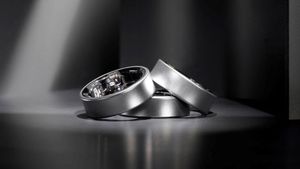JAKARTA Battery is the most important element in electric cars. The emergence of electric vehicles (EVs) in recent years has stolen the public's attention. Tesla electric cars are EVs that are the most sought after by people in various countries. Then other car manufacturers, such as Ford, Honda, Hyundai, and so on are competing to develop electric vehicles.
In Indonesia alone, Hyundai Ioniq electric cars are already roaming the streets. A number of Tesla cars also enliven the streets in the country. However, the technology that drives it, electric batteries, is often misunderstood. In other words, there are still many who do not know about the information related to the electric car battery itself.
Electric vehicles use lithium-ion batteries to power electric motors that make EVs famous for their brutal instant torque and acceleration. These batteries use materials that need to be mined, and their own batteries must be properly treated to avoid permanent damage to the unit. Many are also wondering if EV batteries can be recycled and when the battery will end after they are no longer used. Check the explanation regarding EVs in this article in full!
Battery in electric vehicles most likely uses lithium-ion technology. A common misunderstanding around lithium-ion batteries is that they are only made of lithium, but that's actually not the case. EV batteries consist of various other components. One of the most important components in the process of making EV batteries is cobalt.
Although the battery is called lithium-ion, cobalt is actually the highest-price material in lithium-ion battery cathode production, according to data from the US Department of Energy. So what is cobalt?
Cobalt is an important ingredient in lithium-ion battery cathode production, accounting for about a quarter of battery costs. In addition to high-cost cobalt, lithium-ion batteries use metal content such as nickel and aluminum. EV batteries also contain manganese.
It doesn't stop there, EV batteries also contain materials that are not made up of metal content, such as graphite. The graphite has an interesting nature because it is the only non-logam element on the periodic table capable of delivering electricity. In addition to the materials above, EV batteries also contain well-known lithium, most of which are mined in Chile and a number of other countries.
Production of EV batteries is the most controversial aspect in making EVs, especially as material entering EV batteries needs to be mined. Unfortunately, mining practices around the world are not necessarily the best, and lithium mining, in particular, is problematic due to the environmental impact it has on the surrounding environment.
Before buying electric vehicles, the general public usually considers how long the battery life lasts. The reason is, electric vehicles are different from conventional vehicles in general that use gasoline fuel. Consumers expect years of service during maintenance. However, consumers view EVs differently, and the main reason is because of their batteries.
There is a common misconception that EV batteries will only last a few years. Actually, this is not the main problem. Take Tesla for example. If you ask how long Tesla's battery lasts, you can expect between 300,000 and 500,000 miles (about 804.672 km) of EV battery life. That's if Elon Musk is right. He had tweeted about the lifespan of the Model 3 and hinted at being in those numbers.
The current battery modulator must last 300 thousand to 500 thousand miles. Changing modules (not packages) will only cost you 5k to $7, Elon Musk wrote in an announcement regarding the battery life of an electric car via his Twitter post in April 13, 2019.
Even internal combustion vehicles have difficulty reaching this high travel distance, so the fact that EVs can reach these numbers should relieve many people.
Another big misunderstanding about EVs is that EVs will explode at any time or the driver will be electrocuted while driving a car. Of course, strange accidents can happen, but electric vehicles are a very safe form of transportation. The battery is also protected, especially if you buy an electric vehicle of a heavy-duty type such as a futuristic Rivian R1T car.
Rivian is full of undercarriage of the car body that protects the entire bottom of the vehicle, which will also help protect the battery from harm. EVs are tested extensively before they are available to consumers for purchase, so the safety of batteries in car accidents is an absolute priority for EV manufacturers.
Tesla vehicles regularly occupy a very high position in the standings regarding vehicle safety ratings, so you can rest assured that buying an EV won't make your journey more dangerous. Overall, EVs are very safe vehicles, although the possibility of a battery pack burning is something that cannot be completely ruled out.
If you're wondering how much it will cost to replace any Tesla battery or EV battery in this case, you're not alone. This is one of the biggest fears a potential electric car buyer has to face when considering which electric vehicle to buy. The truth is that premature battery deaths can't be covered up. It's possible your battery was damaged, either it was an accident or another factor that could cause the battery to malfunction again.
This will be an obstacle if your electric car is past its warranty period. If the battery goes out, then inevitably the owner has to replace it. On the other hand, electric car batteries are still very expensive, for example, the Tesla Model S Plaid electric car, the cost of replacing an malfunctioning electric battery can cost $10.000.
Electric vehicle batteries have left big questions for the wider community, including whether electric car batteries can be recycled. Especially because the mining of materials contained in the betarai has become a hot topic of conversation because it is related to renewable and environmentally friendly energy.
If EVs are going to be a viable option for clean transport, recycling batteries should be a must. There are already companies that are working hard trying to figure out the best method for recycling EV batteries. One of these companies is Redwood Materials. The company is working with industry giant Ford in an effort to recycle materials from batteries that have filled the end of its life cycle. So, although recycling today's batteries is not an easy task, many resources are invested to make this process feasible and economical.
This is an article related to 5 facts about electric car batteries that you should know before buying an electric vehicle.
The English, Chinese, Japanese, Arabic, and French versions are automatically generated by the AI. So there may still be inaccuracies in translating, please always see Indonesian as our main language. (system supported by DigitalSiber.id)













